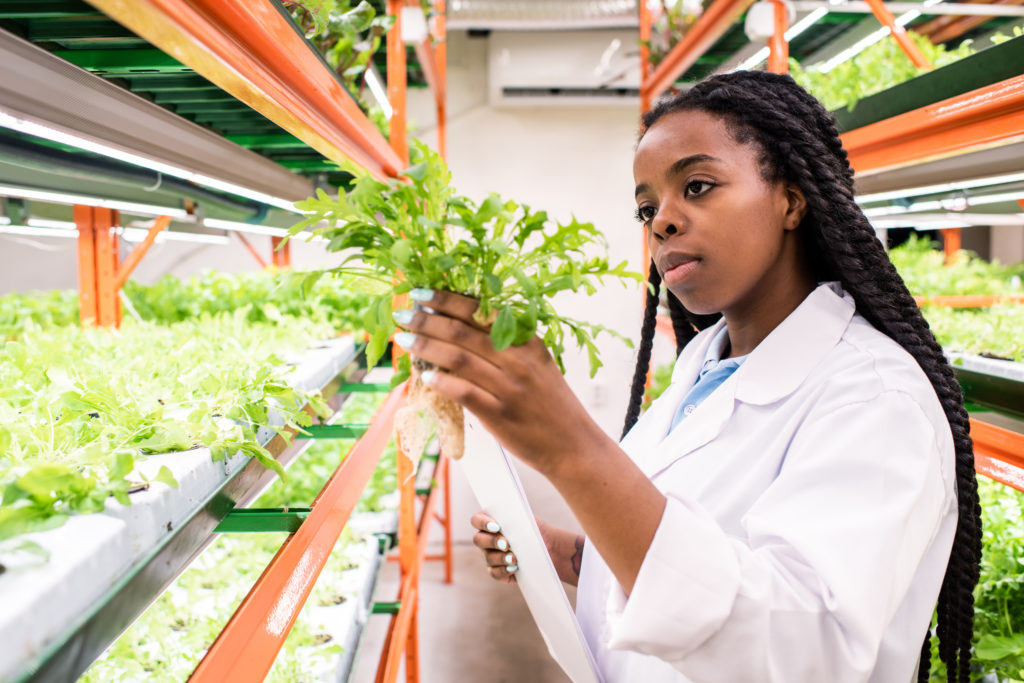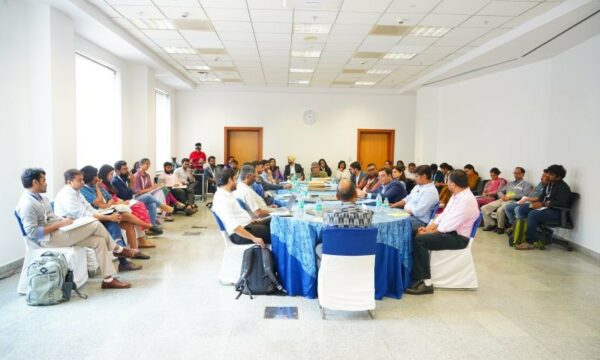Welcome to the second blog of this series. CABI recently hosted a webinar on Opening up agricultural research and data with a great panel of expert speakers who highlighted some of the many opportunities inherent in “open agriculture” (click here to view the webinar).
In the first blog of the series, I looked at how funders and the corporate sector see the potential of open agriculture. While it is clear that funders can wield a lot of power to drive change, it is researchers who actually implement open science. And that is a challenge because for many researchers this is just another drain on their already limited time. Medha Devare, Agronomist and Data Architect from the International Food Policy Research Institute, discussed Incentivising Agricultural Researchers to Share Open and Interoperable Data, looking at this through the eyes of the busy researcher.

Medha has been tackling this as module lead for the CGIAR’s Big Data Platform for Agriculture. As farming becomes increasingly more digital, big data technologies can help provide solutions and options for farmers. This requires the ability to aggregate, harmonise, visualise, analyse, and interpret data from a host of different sources. This extends well beyond publications to data that is FAIRER (Findable, Accessible, Interoperable, Reusable, Ethical and Reproducible). At CGIAR the mantra is KISR – Keep It Simple for Researchers – and comes with a focus on three core questions.
1. What do I need to do?
This requires having clear policies that describe what is expected and required at CGIAR, spanning open access and data management. The policies at the CGIAR are in the process of revision at the moment supported by CABI.
2. How do I do it?
Researchers need support on how to comply with the policies and some hand-holding. Many CG centres have tested data-sprints or curathons, and a comprehensive 5-module online training course is also freely available (check it out here). There is also a data ecosystem that extends from data discovery to data analysis and visualisation tools, making it available for external users. The GARDIAN data portal allows users to explore datasets and collaborate on data projects. This is backed up with suggested FAIR data workflows, and data ontologies. Of course, some of this comes at a cost, with a benchmark of around 5% of a project’s cost being recommended and ideally covered by research project funds.
3. Why do I need to do this?
In part, this is about inspiring researchers to see the potential unlocked by opening up data. Medha showed a PLOS One paper combining 108 datasets from 760 locations to answer the critical question: where in sub-Saharan Africa is fertilizer use profitable? It’s also about some carrots and sticks, with the potential to use annual evaluation metrics and salary increments at the researcher level. At the project level key performance indicators can drive accountability which can be further enhanced if projects cannot close until data compliance has been demonstrated. Finally, Medha highlighted that funders can drive behaviours, and there need to be consequences for non-compliance.
It may seem obvious that opening up access to research outputs is good for researchers around the world, especially those in countries that may not be in a position to subscribe to expensive journal collections. While this is essentially true, Andy Nobes from INASP highlighted that open access presents both opportunities and challenges for low- and middle-income countries.
INASP was commissioned by the UK’s Foreign, Commonwealth and Development Office to investigate the downstream consequences of implementing its open access strategy, taking into account the impact on low- and middle-income countries (LMICs). The report suggests that a shift to open access as the default mode of publishing may have an unintended impact on global research equity.
Researchers in LMICs face a number of challenges, ranging from differential access to resources, networks and publishing infrastructure, to the power dynamics within the global research system. The report identified tensions between open access and the “game of scholarly publishing” with its complex relationships to academic prestige, reputation and impact. Ironically, a well-intended push to open access may simply shift the barrier from unaffordable pay-to-read subscriptions, to unaffordable pay-to-publish charges.
The Northern research system is not easily accessible nor cost-effective for researchers (without a long-term commitment or alternative to waiving APCs), and LMIC-led journals and platforms simply cannot compete with commercial publishers. The report also shows that while there is huge positivity toward the principles of open access, there is a lot of confusion about what it actually entails.
Andy outlined a number of principles that INASP recommends funders consider regarding the global implications of open access:
- – Ideally, funders should ensure that open access options are affordable for LMIC researchers, engaging with the design of a sustainable range of publishing solutions that allows access to local and the Northern publishing systems.
- – There should be support to adopt technical international standards, especially those allowing interoperability and ensuring infrastructural equity.
– There need to be appropriate metrics and research evaluation practices that focus on the quality and relevance of the research, not the outlet in which it is published (i.e. not the impact factor), and quite possibly the development and adoption of new metrics and evaluation criteria that fit the LMIC context.
To continue and read the next blog in the series on open agriculture and international development, click on this link: Opening up agricultural research and data: What does “open agriculture” mean for international development organizations?
To view the presentation slides, click on the links below:
- – Incentivizing agricultural researchers to share open and interoperable data to power innovation — Medha Devare
- – Open science presents both opportunities and challenges for researchers in low- and middle-income countries – Andy Nobes
Medha Devare is an Agronomist and Data Architect in Montpellier, France. She is a Module Lead for CGIAR’s Big Data Platform for Agriculture, which she helped write, and currently lead efforts to help the CGIAR System’s 15 Centres better manage and organize their agricultural knowledge resources to make them discoverable, accessible, interoperable, and reusable. By supporting the use of semantic approaches and Big Data capabilities to enable the easy aggregation of different datasets, and new analyses and interpretations, Medha assists CGIAR’s efforts to accelerate innovation to improve crop productivity sustainably, reduce poverty, and improve food security and nutrition.
Andy Nobes joined INASP in January 2014. His work is focused on helping researchers develop their research writing and communication skills through online resources, courses, mentoring and peer learning. He currently manages the AuthorAID website and has been instrumental in the development of the AuthorAID online courses in research writing and proposal writing, which have evolved into Massive Open Online Courses (MOOCs). Andy has also been involved in training journal editors in Bangladesh, Nepal and Sri Lanka in digital publishing practices. He previously worked for an academic publisher in journal e-marketing and library marketing.
CABI believes that a crucial way to solve problems in agriculture and the environment is by creating, managing, curating and disseminating information. Through our experience in scientific research, publishing, knowledge management and communications, we put know-how into the hands of the people who need it most. CABI’s Open Access programme supports researchers and institutions in sharing knowledge and data. Through the open access preprint service agriRxiv, our open access journal CABI Agriculture and Bioscience, our growing list of open access books and our open tools, like the Plantwise Knowledge Bank and Invasive Species Compendium, as well as through data policy and practice development services, we work in partnership with national systems, donors and partners to improve access to development, scientific and operational data in agriculture and food systems.
Related News & Blogs
Unpacking FAIR’s jargon: The Indian example
Ameen Jauhar, Data Governance Lead in CABI’s Digital Development team, examines the importance of the FAIR (Findable, Accessible, Interoperable, and Reusable) data principles. Drawing from his experience in data governance and policy, including his wor…
16 October 2024





